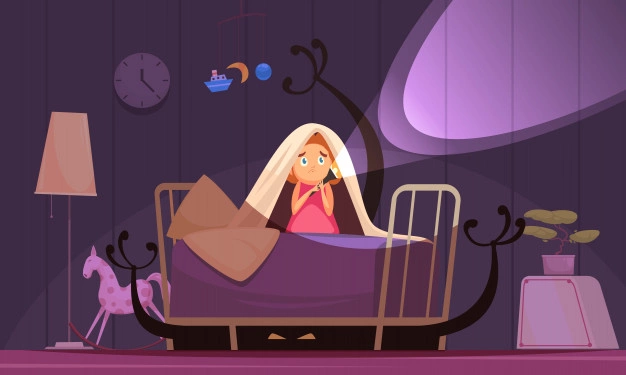Nightmares

Almost everyone experiences nightmares at some point. They can be incredibly distressing! But what exactly is a nightmare, and how do you recognise one in yourself?
What is a nightmare?
Nightmares are vivid dreams with a highly negative tone. The most terrible things can happen in a nightmare, with your worst fears seeming to come to life. Essentially, a nightmare is just a dream about something that you find very frightening. During a nightmare, you often wake up startled, and it can take a moment to realise that it wasn’t real and was just a dream. Nightmares occur during REM or light sleep, disrupting your sleep and making it difficult to fall back asleep.
What are the causes of nightmares?
Nightmares are generally quite normal, and almost everyone experiences them. However, there may be a specific cause if you have frequent nightmares. This can include alcohol and drug use, medication side effects, negative emotions, high stress levels, or trauma.
How do you recognise a nightmare?
There are many different symptoms and characteristics of a nightmare. But what are they exactly? It mainly revolves around the symptoms: if your dreams often involve threatening situations, if your dreams evoke unpleasant feelings such as fear, panic, and sadness. You might not be able to remember your nightmares well when you wake up. Your heart rate may be slightly elevated, you may sweat, and your breathing may be accelerated.
What can you do about a nightmare?
Of course, it is important to have a rested and relaxed body before going to sleep to reduce or prevent nightmares. Engage in a relaxing activity and create a soothing sleep environment. Sharing your nightmares with others can also help reduce or even stop them. When you talk about your nightmares with others, you will notice that it can relieve you, like a weight lifted, and help remove their shock value and power. This way, you can go to bed with a peaceful mind and body and decrease the chances of having another nightmare. Another technique that can help is rewriting your nightmares. Try consciously thinking about your nightmare during the day and give it a happy ending.
How to help your child
What should you do if your child has a nightmare? First and foremost, try to remain calm and always reassure your child! Your presence alone will provide comfort to them. Let your child know that the nightmare is over, that they are safe, and that it was not real. Try to distract your child by mentioning enjoyable things and helping them imagine a beautiful dream.


